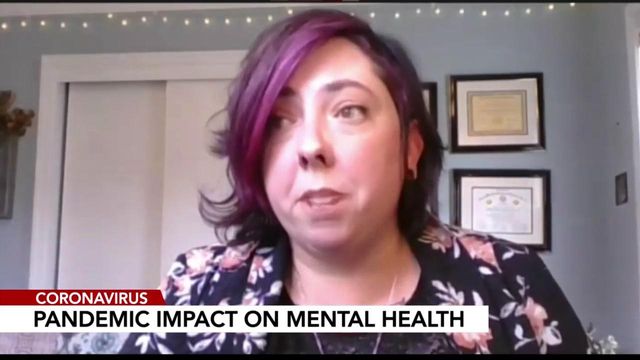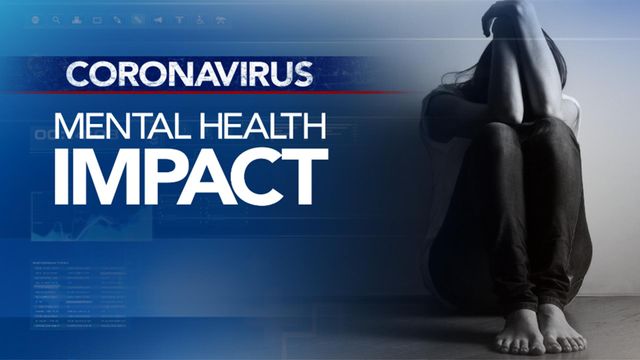Therapist: Build resilience, connections to deal with continuing COVID-19 stresses
Newton said a healthy way to deal with mental, physical and emotional issues is to build up your resiliency.
Posted — UpdatedPracticing psychotherapist Louise Newton with MindPath Care Center in Durham believes life during COVID-19 restrictions and precautions has caused more social and psychological issues than most people realize.
Masks and social distancing, among many other reminders, tell us an invisible viral threat still looms. Even if we don’t catch the virus, Newton says it has changed us.
"First of all, it causes the body and our nervous system to kind of be stuck in ‘fight or flight’ freeze states," she said.
The licensed clinical social worker says everyone is dealing with more stress. Health concerns that existed before the pandemic are now magnified "such as depression, anxiety, alcohol misuse, alcohol dependence and other substances."
Newton said a healthy way to deal with mental, physical and emotional issues is to build up your resiliency.
"Resiliency says, I can make it today," she said. "Even though my hope is out the window, you know, because I’m resilient."
Newton's advice includes keeping in touch with friends and family members if only by phone or online video chats. Avoid isolation. "That’s crucial, because humans, you know, we are social animals," said Newton.
Newton said don’t wait for fears and emotions to grow worse before you seek professional care.
"The pandemic is going to and has normalized behavioral care in a way that we have never seen before in the history of this profession," she said.
Newton also recommends people focus on a favorite activity like cooking or gardening or even try a new hobby. If you feel the house or your office closing in on you, take a break and get outdoors.
She believes when COVID-19 vaccines have helped to bring back a closer sense of normality, many will find long held-in emotions will come to the surface.
"There is going to be a lot of grief and a lot of exhaustion, because finally, it’s safe enough to cry," said Newton.
Related Topics
• Credits
Copyright 2024 by Capitol Broadcasting Company. All rights reserved. This material may not be published, broadcast, rewritten or redistributed.






